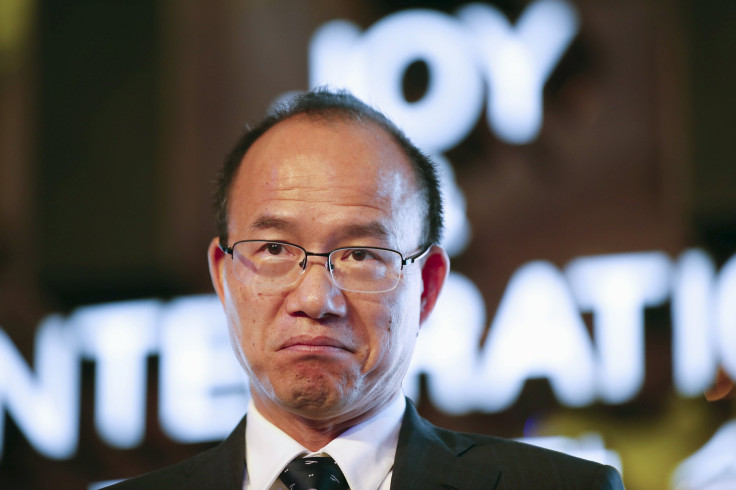China's 'Student' Of Warren Buffett Buys US Insurer Ironshore Amid New Wave Of Chinese Acquisitions

SHANGHAI -- China’s biggest private conglomerate Fosun has agreed to buy full control of American insurance company Ironshore in a deal worth $1.84 billion. The deal, which follows reports of a Chinese consortium’s purchase of iPhone sensor maker OmniVision, is the latest sign of Chinese companies’ growing determination to expand globally.
The Shanghai-based company’s Fosun International investment arm will buy the remaining 80 percent of Ironshore, which specializes in commercial property cover and casualty insurance, after paying $464 million for a 20 percent stake in the company in February, the Shanghai Daily reported on Tuesday.
Fosun Chairman Guo Guangchang said in a statement that the acquisition, which is pending regulatory approval, would “strengthen the group’s capability to access long-term high-quality capital.” He said Fosun planned to retain the senior management of Ironshore, “while improving its products and services.”
Fosun began in real estate and pharmaceuticals, and has major investments in steel. Its global investments, estimated at $25 billion since 2010, include U.S.-based Studio 8, and the former One Chase Manhattan Plaza building in New York, and a stake in French holiday company Club Med. It recently bought Australian oil firm Roc Oil, and a stake in German bank BHF.
In recent years it has invested as much as a third of its capital in the insurance industry -- it has set up a life insurance company with Prudential Financial, and last year bought U.S. company Meadowbrook, and took an 80 percent stake in Portugal’s largest insurance company Caixa Seguros for over $1 billion.
The 48-year-old Guo, whose net worth is currently estimated by Forbes at $9.3 billion, says his investment strategy is inspired by traditional Chinese sages, but has also described himself as a student of Warren Buffet -- and says he plans to use revenues from insurance to fund other investments in future.
Fosun International's annual profit grew 24.2 percent last year to $1.1 billion, while profits from its insurance business almost doubled to $177 million, according to the Shanghai Daily.
Credit ratings agency Moody’s has previously expressed concern that the company’s borrowings could hurt its financial strength and has said it faced great funding pressures -- but recently revised its outlook from negative to stable.
Meanwhile the Shanghai Daily reported that a consortium of semiconductor investors from China had agreed to spend $1.9 billion to buy OmniVision, which makes sensors for Apple’s iPhones. The investor, Hua Capital Management, is described by Chinese media as “a Beijing-based private-equity firm which was founded last December with investment from top semiconductor firms and top state-owned enterprises.”
The news comes soon after China's Premier Li Keqiang encouraged Chinese businesses to continue investing abroad, as the nation seeks to diversify its economy away from labor-intensive manufacturing. It follows several recent Chinese investments in chip manufacturers and designers, including Singapore-based Stats ChipPac. The Shanghai Daily said Chinese companies were keen to acquire technology and capacity that China still lacked.
Meanwhile French media reported at the weekend that several Chinese nuclear power companies were considering buying a minority stake in loss-making French nuclear power giant Areva. There has been no confirmation of the reports, but one of the companies mentioned, Dongfang Electric, told the South China Morning Post that it ‘did not rule out' deepening cooperation with Areva.
With China planning a massive expansion of domestic nuclear power plants, experts say the country is seeking to acquire French reactor-design technology, which Areva has yet to transfer in its existing operations in China. Two Chinese nuclear power companies have also bid for stakes in a project with French power generator EDF to build a new nuclear power plant in the U.K., though the project has yet to be finalized.
© Copyright IBTimes 2025. All rights reserved.






















